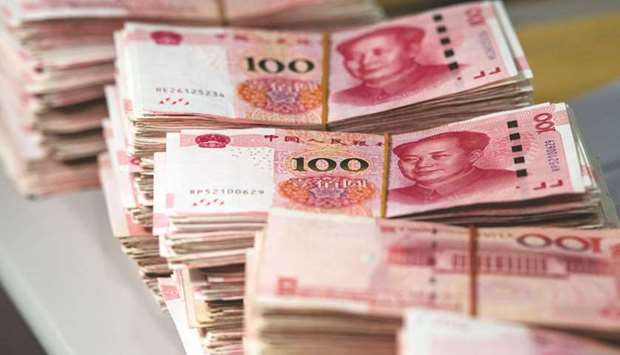It looks like the Chinese yuan isn’t going to get much of a break between now and the US election.
With little more than three months to go before the presidential vote, the growing tension between the US and China is rapidly closing the door on any prospect of a rally.
The yuan has wilted against its trade-weighted basket in the past three weeks, and though much of that has been caused by the slide in the US dollar, the geopolitical factor has played its part.
For Jude Blanchette, Freeman Chair in China Studies at the Centre for Strategic and International Studies, the next few weeks are likely to be peppered with risks.
And while each individual risk seems manageable in and of itself, their combination may have more of an impact on the market than traders are currently anticipating.
“We’re in the middle of an election campaign, the midst of a pandemic, with all the desire to attribute blame, and China is battling to recover,” Blanchette said in a telephone interview from Washington. “Putting all this together, the market seems remarkably sanguine.” For sanguine, read complacent, with Michael Pompeo’s July 23 speech at the Nixon Library providing evidence of the continued ratcheting-up of tension, according to Blanchette.
It was “the most aggressive rhetoric from a senior administration figure against the Communist Party in modern times,” he said.
Further flashpoints are manifold. The US Secretary of State’s report identifying persons who have undermined Hong Kong’s autonomy and the related Treasury report on financial institutions are yet to come. A Chinese economist, the ex-SAFE official, Guan Tao, recently called for financial institutions to prepare for US legislation that could penalise banks for officials who implement the Hong Kong national security law. There are numerous items of legislation snaking their way through Capitol Hill with the potential to cause offence, too.
And none of that diminishes the tension in the South China Sea, especially over Taiwanese territories. That said, the risks of a major provocation are small, according to Blanchette.
“China will be thinking about this strategically,” he said. “They may be increasingly aggressive, but they are not reckless.”
The good news is that the Phase One trade deal doesn’t seem under imminent threat because “neither side wants to be the first mover on this,” Blanchette said.
In this respect, Blanchette attaches a lower probability to additional tariffs than analysts such as David Dollar, senior fellow of Foreign Policy, Global Economy and Development, John L Thornton China Center at Brookings Institution.
Still, “there are risks to the trade deal if the Trump administration needs an adrenaline shot in September or October,” he said. Hence the yuan’s ride between now and polling day November 3 is almost certain to be a rocky one.

The yuan has wilted against its trade-weighted basket in the past three weeks, and though much of that has been caused by the slide in the US dollar, the geopolitical factor has played its part
